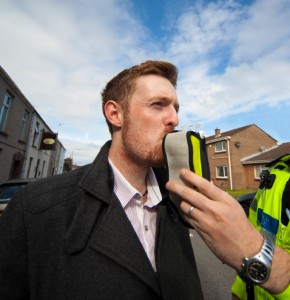 The graduated sanction is a common principle in criminal justice. First offense draws the least severe punishment. Repeated offenses draw increasingly severe consequences. It makes sense– there’s no need to fill the jails with first offenders. Save the space for the serious criminals.
The graduated sanction is a common principle in criminal justice. First offense draws the least severe punishment. Repeated offenses draw increasingly severe consequences. It makes sense– there’s no need to fill the jails with first offenders. Save the space for the serious criminals.
Except: It doesn’t seem to work all that well with DWI.
One reason: Research suggests that a ‘first’ DWI offense isn’t actually a first. For every conviction, the typical offender has actually driven drunk up to 200 or more times. He’s just been ‘lucky’ to that point, if you consider that good luck.
So a first offense can actually represent the product of a longstanding, well-established pattern of behavior.
And there’s always peer culture to contend with. One attorney put it: “My clients don’t take the first one seriously, or even the second one, for that matter.” For the offender, it can be like getting busted for selling pot in a crack-infested neighborhood. There’s no particular stigma attached.
Suppose we locked up the first offenders for a week or a month. Would they be less likely to reoffend? Apparently not. Researchers say deterrence is less about the severity of the consequence than how quickly it follows on the heels of the arrest. The longer the delay, the less the deterrent effect. And the courts often move slowly. It gets to be like the fellow who refuses to pay rent yet manages to stay in the apartment for another six months anyway. The scofflaw thinks, ‘Hey, this ain’t so bad.’
Repeat offenders are not invariably chronic alcoholics, by the way. Some are just people with a particular problem with reasoning and behavior.
One explained it to me: “Look, I can’t drink at home, my family won’t allow it. So I go out to the bar. Sometimes I drink too much. I’ve spent all my money, I can’t afford a cab, can I? What else am I supposed to do?”
His suggestion: Bar owners get together and spring for free rides home.
People who rely on this sort of reasoning tend to make the same mistake over and over.










